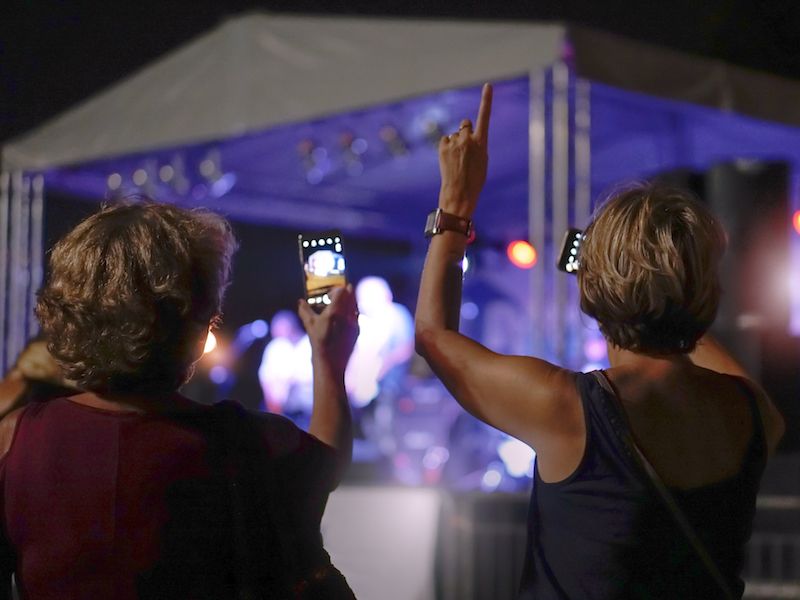
Summer has finally arrived, and it’s time for all those things we’ve been getting excited about: swimming in the pool, going to the beach, and some activities that could injure your hearing. You could find yourself in external situations or exposed to other loud noises this summer that are hidden dangers to your ears. Any sounds above 80 decibels can injure your ears, while lasting hearing loss can happen in swimming pools or other bodies of water. You need to take preventative measures and be conscious of your environment so that you can keep your hearing safe this summer season. Here are 6 of the summer’s hidden hearing risks.
At Concerts, Wear Ear Protection
Whether you’re at an indoor arena or an outdoor show venue you still need to use hearing protection during concerts. 90 decibels is inside the danger zone for ear damage and live music reaches this volume even when you’re at outdoor venues. So regardless of whether you’re going to inside or outside shows, it’s a practical plan to use earplugs. You can still hear the music with earplugs in it’s just dampened slightly. If you’re bringing young kids to a show, think about getting them a heavy duty pair of earmuffs because children have more sensitive hearing than adults.
It’s More Than Just Loud at Fireworks
Honestly, there are a lot of reasons to avoid fireworks in the summer. It’s not exclusively the 4th of July shows which are pro that can hurt your hearing, we mean the backyard fireworks which every summer cause many of injuries. Home fireworks reach decibel levels of nearly 155 which can hurt your ears as well as causing hand problems, blindness and backyard fires. This 4th of July, leave the fireworks to the professionals and enjoy the display from a protected and sound distance.
Mowers Can Cause Hearing Loss
If you’re serious about your lawn, most likely you’re out there at least once a week on your lawnmower, trimming your bushes and using your edger. But have you ever noted how off your ears feel when you get done, how everything sounds muffled or your ears are ringing? That’s because the lawn tools, which are constantly loud, have a slow and steady impact on your hearing. You’ve probably noticed lawn professionals using some form of hearing protection, you should take a cue from them and wear earmuffs or earplugs next time you work on your lawn to ensure your hearing stay healthy.
Here’s How to Safeguard Your Hearing When You go Swimming
Millions of people suffer from swimmer’s ear every summer, which happens when bacteria-laden water gets trapped inside your ear canal. The bacteria will then infect the ear, producing painful earaches and swelling. These bacteria are commonly found in lakes and rivers but sometimes also be found in hot tubs and pools if the water isn’t properly treated. No irreversible injury should take place if you have your ears examined by a hearing specialist. To be safe, when swimming in your pool, use special swimmers earplugs and keep the chemical balance correct to decrease the likelihood of getting swimmers ear.
Boats and Other Water Sports
Summertime is a breath of freedom for the people who love to be out on the water, taking in the fresh lake breeze or the salty air of the ocean. But, jet ski and boat engines are often loud,they can get up to more than 100 decibels. Long term hearing impairment can happen after about 15 minutes of exposure to that kind of noise. Once more, it’s really in your best interests to use a couple of disposable, foam earplugs while you’re out on the water to make sure you don’t unwittingly damage your hearing.
Your Ears Can be Injured by Car Races
It doesn’t make a difference what kind of auto racing you enjoy, motorcycle, midget, Formula 1, drag racing or stock cars. Each one of them can present a huge issue for your hearing if you go to many races this summer. It’s calculated that sound levels can go beyond 120 decibels at many races, which is definitely in the danger zone for hearing impairment. Earplugs are your best bet at these races, whereas your kids should definitely use the earmuffs we mentioned earlier. Otherwise, you may not be able to enjoy the sound of those engines in the future.
